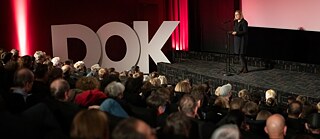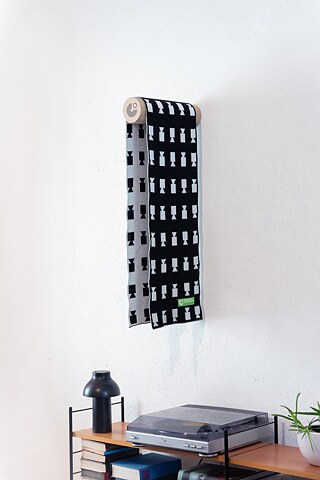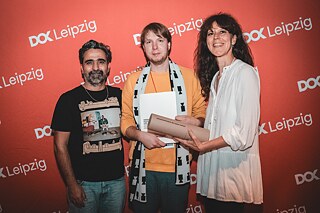Picture Palace
DOK Leipzig 2023

At the 66th edition of DOK Leipzig, a host of new films was presented. As in previous years, the festival focused on Central and Eastern European film. Goethe-Institut’s Documentary Film Prize was also awarded at the event.
By Ewa Wetzel
The 66th edition of the International Leipzig Festival for Documentary and Animated Film, DOK Leipzig for short, showcased 225 films and computer-generated extended-reality productions from around 60 countries, including 44 world premieres. Cinema theatres were packed and multigenerational audiences created a lively atmosphere. DOK Leipzig traditionally focuses on Central and Eastern European films, but festival entries also highlighted the Cold War and post-Soviet states. The short films and full-length productions came from Estonia, Georgia, Croatia, Poland and Slovenia, as well as Slovakia, Ukraine and the Czech Republic.
This year, special attention was paid to the war in Ukraine. The festival opened with White Angel - The End of Marinka by Leipzig-based investigative journalist Arndt Ginzel. The highly emotional documentary about evacuation and rescue missions in the small Ukrainian town of Marinka (Donetsk region) left a lasting impression on the audience.
Alongside regular Leipzig cinema venues, “DOK in Prison” took place again this year at the juvenile detention centre Regis-Breitingen, where For the time being was screened. The film tells the story of US-American Michelle who wants to prove that her imprisoned husband is innocent. Leipzig main station’s Osthalle was also converted into a public cinema again, and the retrospective Film and Protest – Popular Uprisings in the Cold War premiered here on 9 October, the anniversary of the Peaceful Revolution in Leipzig in 1989.
Goethe-Institut Documentary Film Prize

The newly designed trophy was presented at this year’s DOK Leipzig for the first time.The winning film was One Hundred Four by Jonathan Schörnig. The jury praised the “meticulously documented sea rescue of migrants in the Mediterranean”, which “deepens our understanding of the urgency of the humanitarian mission”.
